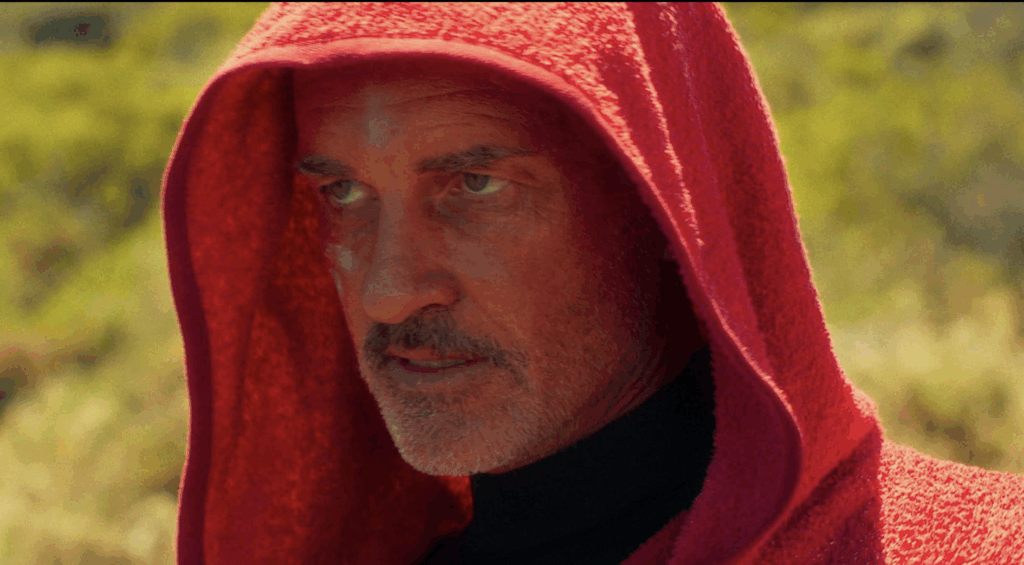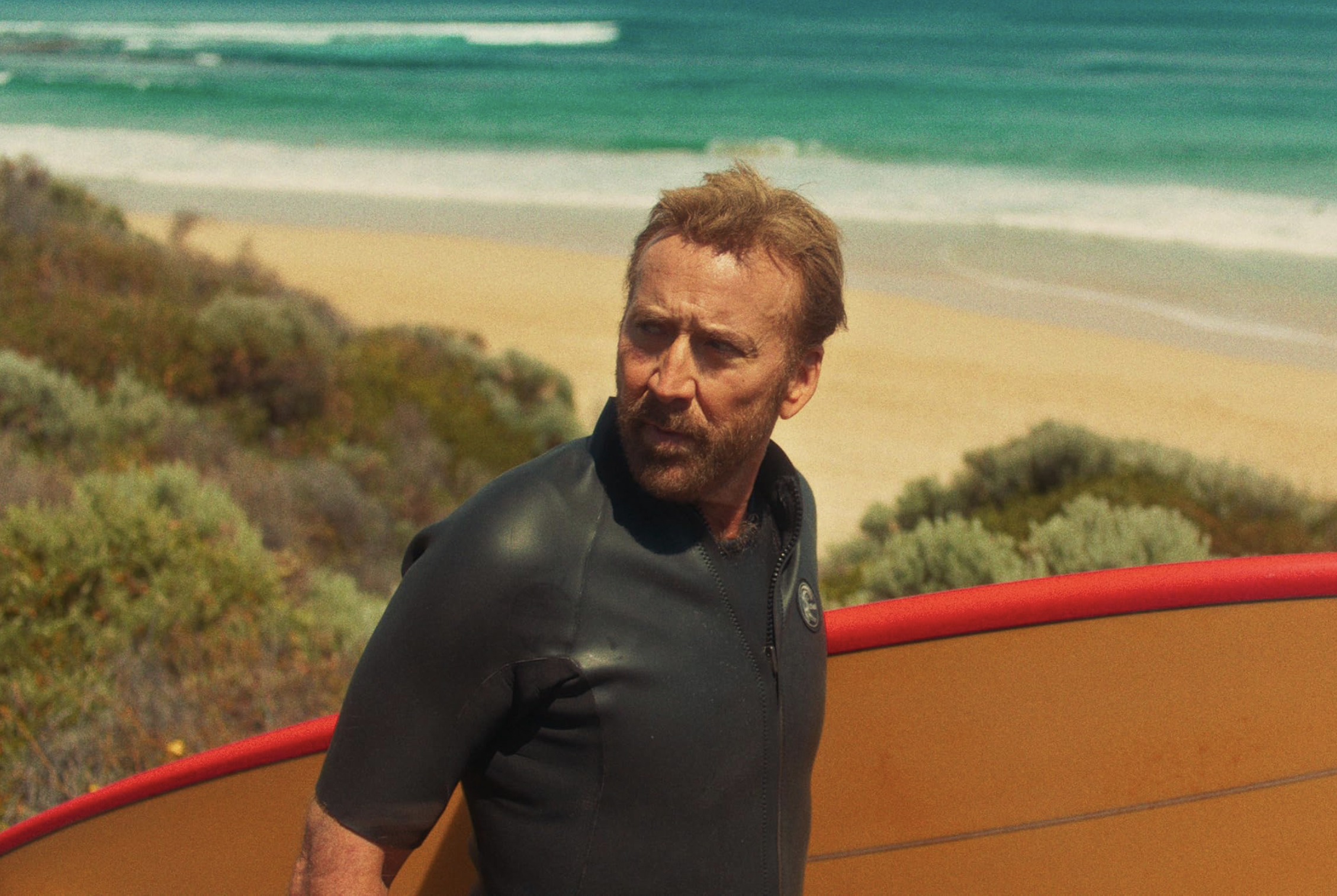Directed by Irish filmmaker Lorcan Finnegan, best known for his sickening suburban horror Vivarium (2019), The Surfer tells the story of a man (Nicolas Cage) venturing to his treasured childhood coastal town in Australia with his son (Finn Little) in hopes of repurchasing the family home he grew up in. Yet, as they arrive, ‘the surfer’ is ridiculed by local residents in a petty turf war of surfer politics with the hostile mantra “Don’t live here. Don’t surf here.”, which leads to an escalating conflict pushing him on an unhinged odyssey into insanity.
The Academy Award-winning actor presents a captivating performance of a desperate man, tortured by the past and longing for familiarity and stability. Cage is relentlessly bullied and gaslit throughout most of the film by those around him. Ostracised and vulnerable, The Surfer is a comedically cruel portrayal of a man on the brink of losing everything, acting as a punching bag for the community of hidden alliances he so hopelessly longs to reintergrate with. Part of what makes the audience sympathise with his character is that we are just as excluded and disoriented as he is. ‘The Surfer’ is clinging to control as he eagerly fixates on an expected phone call from his broker to secure a deal on his dream home. As the film progresses, we witness his mental state deteriorate, unbeknownst whether this is due to hallucinations, heat exhaustion or if the town is truly as crazy as it seems.

‘Scally’ (Julian McMahon) past acquaintance of ‘The surfer’, is the ringleader of a testosterone-fueled, alpha male, boho wellness cult, preaching the warped view that the modern workplace has softened the man and provides his disciples with a beach hut dojo to unleash their violent animal instincts. The script loads the canon but ultimately fails to fire with its mediocre attempt at producing a profound comment on class aspirations and delusional masculinity. A pivotal moment in the film is during the climax when a character rejects the ‘bay boys’ agenda and states, “everyone is in shackles and they are calling it jewellery.” Cage’s character reflects this in his inability to distinguish his wants from his needs, he becomes increasingly consumed by his desires and spirals further into self-destruction. With all the properties for a strong take on capitalism and toxic laddish culture, its ambiguity diminishes its potential. It spends more of its time indulging in the uncertainty of its narrative than proving any thought-provoking revelation.
After surpassing his breaking point, the surfer releases a volcanic outrage, passing his test and being accepted into the macho movement through an oceanic immersion baptism. A stellar and rather humourous execution from Cage, breathing life into my new favourite quote, “eat the rat!” The delivery is equally absurdly chaotic and oddly fitting, sprinkling some humour into the film’s otherwise tense atmosphere.
Summoning an inescapable ambience of unease is something the movie does incredibly well. This is largely down to the impressively unsettling use of cinematography. The confined, claustrophobic filming locations of a concrete car park and an idyllic beach trap both the lead and the audience in his psychological nightmare. The hallucinogenic visual style amplifies the dreamy, surrealist state Cage’s character feels with aerial shots of the blazing sun, the country’s fearsome creatures and jarring close-ups of the brooding cackles from the townspeople. The buildup of visual composition, combined with immersive sound design, makes the film so mind-bending, succeeding in leaving you bewildered as if you are experiencing the same mid-life crisis yourself.
However, this does not counteract the fact that the plot has its shortcomings. It sets up for a Fight Club-esque twist ending, dropping plenty of clues to convince yourself you’ve cracked it, only to not follow through. The film ends with father and son achieving their original goal of surfing off into the horizon as if nothing happened, leaving the entire 103-minute run time feeling a bit pointless. I think there was a lot of untapped potential, particularly in regards to the undeveloped message it was trying to explore. Despite not being the biggest fan, it was still an interesting watch for the striking visuals, unpredictable acting and unique atmosphere it creates. Although one thing is certain, it’s always fun to see Nicolas Cage crash out on the big screen.

